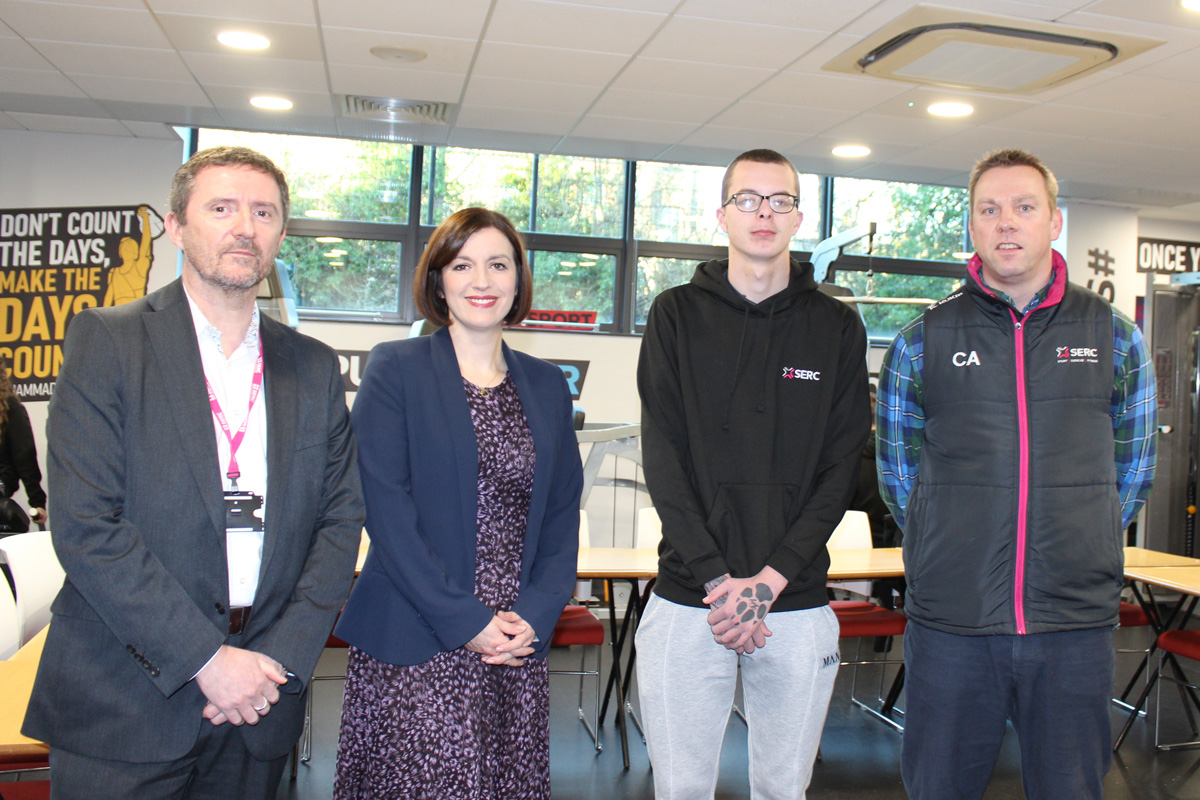Cost-of-living drives university fragmentation as nearly half of UK students classify themselves as ‘commuter students’

- Nearly half (46%) of UK students classify themselves as commuter students. Of this figure, 20% of students stayed at home to study due to necessity.
- Just 3% of today’s students feel they have enough money. On average, students report needing £621 extra a month to feel confident they will be able to complete their degree – a 13% increase on last year. This figure rises to £782 for students who commute to university due to necessity.
- 85% of today’s students are worried about money. 54% of those who worry about money say this negatively impacts their mental health.
- 3 in 4 students (76%) are worried that the cost of living crisis has negatively impacted their final degree grade with over half (59%) receiving a lower grade than expected due to cutting down on going to campus.
- Two-thirds (66%) of students say that not having enough money has negatively impacted their university experience: 1 in 10 regret their decision to go to university.
A new report from Blackbullion, has found that the cost-of-living is reshaping today’s university experience and driving fragmentation, with increasing numbers of ‘commuter students’. The Student Money & Wellbeing Report, based on 1,200 students surveyed across the UK, has found that 46% of students classify themselves as ‘commuter students’. Of this figure, 20% of students had stayed at home to study due to necessity.
The report also reveals that just 3% of today’s students feel they have enough money to complete their degree. On average, students reported needing £621 extra a month to feel that they can confidently complete their degree. This is a 13% increase on last year’s budget shortfall of £548 and 89% higher than Blackbullion’s original Student Money & Wellbeing Report in 2021. These figures suggest that in 2024, extreme financial pressure is part of the university experience on a larger scale than ever before.
The findings show that commuter students are particularly hard hit. 70% of commuter students work alongside their studies, compared to a national average of 63%. At the same time, despite living at home, this group of students report a larger financial monthly shortfall of £671. This figure rises to £782 for students who commute due to necessity rather than as a choice.
The mental health cost
The Student Money & Wellbeing Report looks at the true cost of university education from a financial, wellbeing and social perspective. This year, it found that 85% of today’s students are worried about their finances, a small drop on 2023’s 87% peak, but still significantly higher than the 75% in 2021 and 2022.
Within this cohort, 54% of those who worry about money say this negatively impacts their mental health:
- 93% of those say worrying about money regularly or sometimes triggers stress
- 77% say they feel hopeless
- 72% report feeling isolated – an increase on last year’s 68%
For the commuter student community, students commuting due to necessity rather than choice are again feeling the impact, with 61% of this group saying it negatively affects their mental health compared to the 54% average.
Campus access impacts academic attainment
The report also reveals that more than three quarters of UK university students (76%) say the enduring cost of living crisis might negatively impact their final degree grade. And while 74% of students commuting by choice are very or somewhat worried about the impact of the cost-of-living crisis affecting their academic outcomes, this number rises to 84% for those who commute due to necessity.
Drilling further into academic attainment, the report asked students why they achieved a lower grade in an exam or assignment than expected in the past 12 months because they were unable to study, revise for an exam or complete an assignment:
- 59% cited cutting back on going to campus to study independently or use university facilities such as the library. In 2023 this figure was 54%
- 59% said it was a result of avoiding purchasing books or equipment for their course (56% in 2023)
- 58% cited hours spent working and the same number said cutting back on going to campus to attend lectures or seminars (again, 56% in 2023)
- 57% of students have received a lower grade than expected in the last 12 months due to being too cold to study or concentrate (60% in 2023)
- 56% have received a lower grade because they were too hungry (55% in 2023)
Two-thirds of commuter students (66%) have received a lower grade than expected over the last 12 months as a result of cutting back on going to campus to study independently or use university facilities, with the same figure reporting a lower grade due to cutting back on attending lectures or seminars. This is against a 58% average. Both figures point to a reduced presence of commuter students on campus due to costs.
The widening university experience and expectation gap
Blackbullion’s Student Money & Wellbeing Report also pinpoints a widening gap between student expectations and the reality of university experience, of which money is a main driver. Over half (54%) of the students surveyed this year said their university experience is either worse or different (neither better nor worse) than expected due to financial pressures. For students who commute due to necessity, this figure rises to 64%. Overall, 1 in 10 UK students in 2024 regret their decision to go to university.
Vivi Friedgut, CEO and founder of Blackbullion, comments:
“This year’s report shows that the enduring cost-of-living crisis is now a ‘new normal’, reshaping every aspect of the university experience – from academic attainment to mental health, physical health and social connection. What we’re seeing is a crisis of engagement increasingly defining today’s student experience: engagement with learning, with the student community and with campus life itself.”
“As we see increasing fragmentation across the student landscape, we need to ask how universities can use this juncture point as an opportunity to rethink how they engage with students? And, in recognising the widening and unique needs of today’s students, how can we create support systems that ‘de-risk’ starting university so that we transparently and honestly support students’ needs?”
Lee Elliot Major OBE, Professor of Social Mobility at the University of Exeter, adds:
“Higher education’s ‘haves’ and ‘have-nots’ have been classified in many ways over the decades: middle class versus working class; rich versus poor – it goes on. But in the post-pandemic world, a new academic divide has emerged: the commuter student versus the on-campus student.”
“One of the most cherished principles at the heart of higher education is that those with the potential to benefit from academic study should not be hampered by material deprivation, or where they happen to come from. In this rapidly changing landscape, we must also ensure that all learners prosper irrespective of how they happen to get to or access the lecture theatre or whether they study from hall or home.”
A full copy of Blackbullion’s report is available here.











Responses